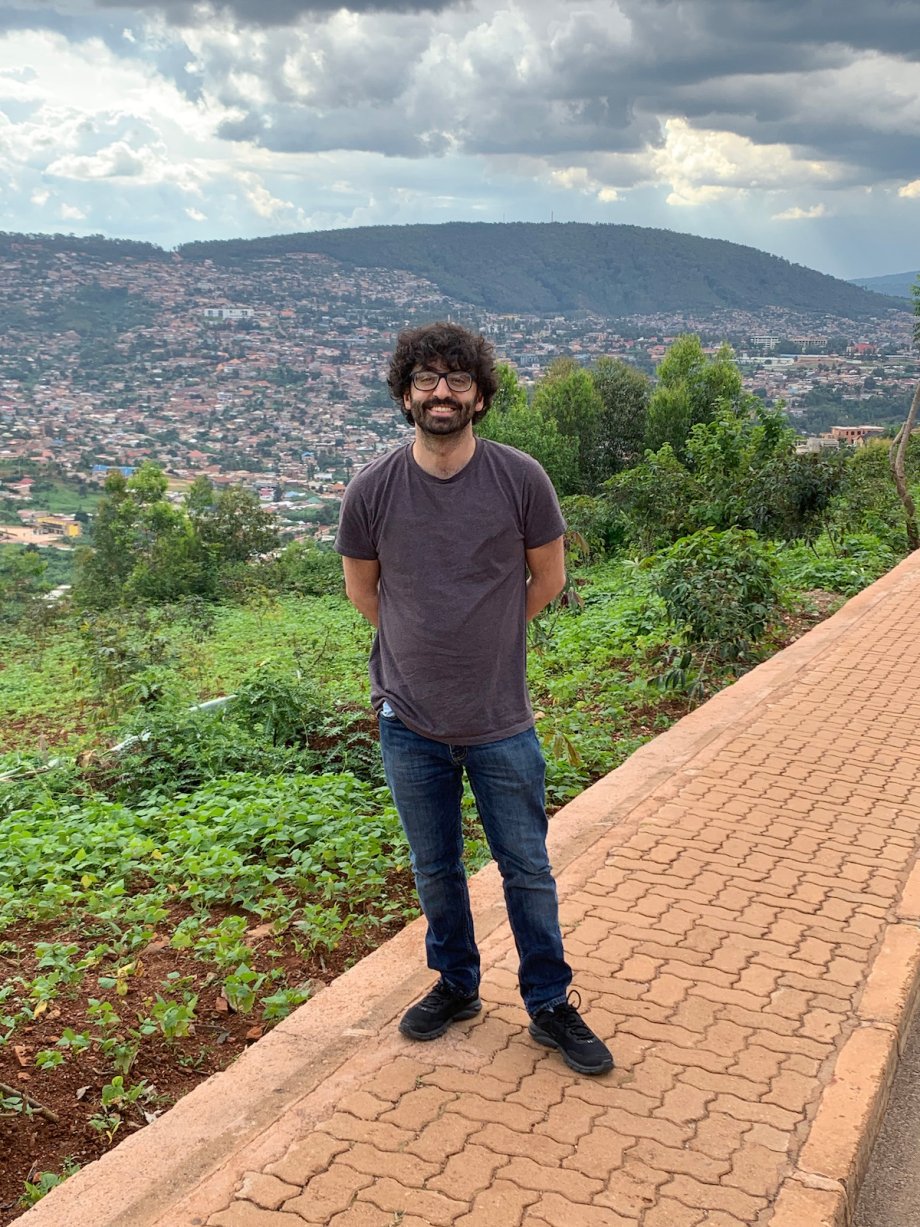
Last semester, Michael Puthawala made the 8,000-mile journey to Kigali, Rwanda, for the 11th annual International Conference on Learning Representations.
Puthawala, a South Dakota State University assistant professor in the Department of Mathematics and Statistics and the CAPITAL Services scholar in artificial intelligence and machine learning, is a relatively new faculty member at SDSU but is already making significant contributions to his academic area of expertise: machine learning.
"My research is machine learning, which is all about enabling algorithms and programs, while finding patterns in data," Puthawala. "My research is all in the fundamentals of machine learning and understanding what makes this technology tick."
The International Conference on Learning Representations is considered by many to be a top international conference for machine learning, making it even more impressive that Puthawala, in his first full year as a professor, was invited to give a presentation. It was also the first time a sub-Saharan African city had hosted this prestigious conference, making Puthawala's preparation—gathering pre-flight vaccines and malaria medication—and travel—24 hours’ worth on the way there and 32 on the way back—far more unique.

"This research—and subsequent presentation—looked to understand this small piece of machine learning: What does it mean for a network to be injective?" Puthawala said. "The paper allows people to understand what machine learning is doing more effectively."
His presentation was based on a research paper titled "Globally Injective ReLU Networks," which was published last year in the Journal of Machine Learning Research.
"The base question from this research is showing how something that is very precise and useful, but difficult to interpret, is exactly the same as something that is easier to interpret," Puthawala said. "The rest of the paper is producing results based on that equivalence. It uses intuition—this separate lens of looking at a problem—to prove lots and lots of other results. "
Background
Originally from upstate New York, Puthawala has long been fascinated with mathematics, but for a long period of time, he didn't realize that being a mathematician was, or could be, an actual profession.
"I didn't realize being a mathematician was an actual career choice," Puthawala said. "I thought if you liked math, you were an engineer. If you liked art, you became an artist—things like that. It wasn't until I started applying for colleges that I realized that being a professional mathematician was a career option."
This realization got Puthawala on his academic path. He completed his undergraduate degree in mathematics from Rensselaer Polytechnic Institute in 2014 before moving across the country to pursue a graduate degree. In 2019, Puthawala successfully defended his Ph.D. in applied mathematics from the University of California, Los Angeles.
He then decided to pursue a postdoctoral fellowship at Rice University. It was there that he made a switch in his academic and research interests. During his graduate studies, Puthawala was focused on applied mathematics, specifically, inverse problems and optimal transport.
"I haven't been in the machine learning game all that long," Puthawala said. "During my postdoc, I made a switch to more machine learning-type work."
The change came naturally, and his new focus on machine learning has brought immediate success. Now heading into his second year as an assistant professor, Puthawala is eager to pursue new projects that help increase the fundamental understanding of machine learning.
"Dr. Puthawala's expertise in machine learning is extremely valuable for our department and students, and extremely timely in terms of its relevance to major societal issues of the day—such as the impact of ChatGPT and artificial intelligence," said Kurt Cogswell, head of SDSU's Department of Mathematics and Statistics. "His research focuses on developing a deep understanding of the capabilities, the limits, and the applications of machine learning and AI. That deep understanding is exactly what is needed to help society develop wise policies and practices around AI."
While there has been an adjustment period to moving across the country once again, Puthawala has enjoyed his time at SDSU, particularly in his interactions with students, staff and other faculty members.
"I really appreciate the collaborative environment here at SDSU," Puthawala said. "Faculty members are very helpful and always willing to lend assistance where needed."
Outside of academics, Puthawala and his fiancé enjoy cooking new dishes and trying new recipes.
- Contact:
- Telephone number: 605-688-6161
Republishing
You may republish SDSU News Center articles for free, online or in print. Questions? Contact us at sdsu.news@sdstate.edu or 605-688-6161.

